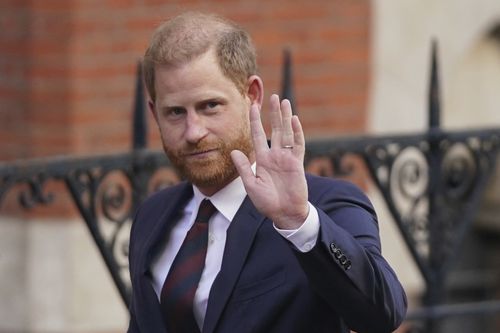Share this @internewscast.com
Prince Harry’s appeal against the UK government’s decision to revoke his publicly funded security after he departed from royal duties and relocated to the US was dismissed on Friday.
The Court of Appeal unanimously decided that the committee acted appropriately in choosing to assess Harry’s protection on an individual basis for each visit he makes to the UK.
Justice Geoffrey Vos, in a 21-page judgment, acknowledged that the Duke of Sussex felt unjustly treated and noted the compelling and emotional arguments presented by his lawyer. However, he stated that Harry’s dissatisfaction didn’t provide legal grounds for contesting the denial of regular security.

A lawyer for the government said that Harry’s argument repeated his misconceived approach that failed in the lower court.
“It involves a continued failure to see the wood for the trees, advancing propositions available only by reading small parts of the evidence, and now the judgment, out of context and ignoring the totality of the picture,” attorney James Eadie said.
Harry and his wife Meghan, Duchess of Sussex, had stepped back from their official roles in the family in 2020, because they didn’t feel they were “being protected by the institution”, his lawyer said.
After doing so, a Home Office committee ruled there was “no basis for publicly funded security support for the duke and duchess within Great Britain”.
Harry claimed that he and his family are endangered when visiting his homeland because of hostility aimed at him and Meghan on social media and through relentless hounding by news media.
Since he lost his government-sponsored protection, Harry faced at least two serious security threats, his lawyer said in court papers. Al-Qaida had published a document that said Harry’s assassination would please Muslims, and he and his wife were involved in a dangerous pursuit by paparazzi in New York.
Harry, 40, the younger son of King Charles III, has bucked royal family convention by taking the government and tabloid press to court, where he has a mixed record.
He lost a related court case in which he sought permission to privately pay for a police detail when in the UK. A judge denied that offer after a government lawyer argued officers shouldn’t be used as “private bodyguards for the wealthy.”
But he won a significant victory at trial in 2023 against the publisher of the Daily Mirror when a judge found that phone hacking at the tabloid was “widespread and habitual”. He claimed a “monumental” victory in January when Rupert Murdoch’s UK tabloids made an unprecedented apology for intruding in his life for years, and agreed to pay substantial damages to settle his privacy invasion lawsuit.
He has a similar case pending against the publisher of the Daily Mail.










